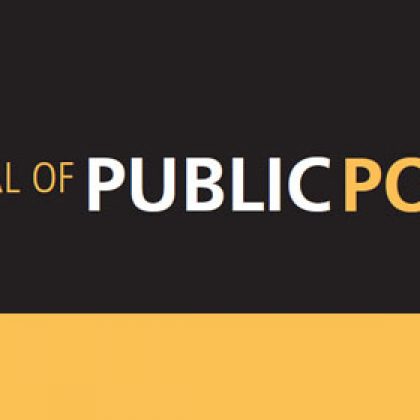Framing the Future of Environmental Conservation
The paper ‘Framing conservation: ‘biodiversity’ and the values embedded in scientific language, published in Environmental Conservation, has been chosen as the latest addition to the Editor’s Choice Collection
We all know that political groups are very thoughtful about how they frame the issues that matter to them. The opposing sides in the abortion debate strategically position themselves as “pro-life” and “pro-choice” so their positions resonate as widely as possible. Proponents of “gun control” discuss whether they would be more successful if they adopted alternative concepts, like “gun safety.” The media debates how to handle political conflicts over the names of countries (e.g., Myanmar or Burma) and organizations (e.g., Islamic State, ISIS, ISIL, or Daesh). Everyone is on the lookout for the most strategic ways to frame their preferred political initiatives.
In my article for Environmental Conservation, I argue that scientists should also be on the lookout for situations in which their language matters, especially when they work on policy-relevant topics that call for motivating people to take action. For example, I note that the concept of “biodiversity” has connotations that are helpful in some respects for promoting conservation but unhelpful in other respects. In particular, I suggest that talking about biodiversity focuses our attention on the wide variety of organisms “out there” in the natural world around us, but it does not inherently draw attention to all the interconnections between us and those other organisms. I point out that other concepts, like “life support systems” or “food security” or “environmental justice,” draw more explicit connections between human concerns and the natural world around us. I conclude that we might have more success promoting conservation if we were more thoughtful about employing a strategic range of concepts in both scientific research and the policy domain.
Some scientists might worry that if they start trying to frame their work in the most compelling ways, it will politicize science. Several years ago, Matthew Nisbet and Chris Mooney published a piece in Science, arguing that scientists would do well to frame their work strategically when they talk about politically sensitive topics like climate change, evolution, and stem cell research. Some scientists responded with the concern that science is respected precisely because it stays above the political fray; they worried that scientists could lose respect if they don’t just “stick to the data.”
I respect these concerns, but I argue in my article that they are ultimately too idealistic. Scientists invariably frame their work in one way or another. Thus, I think they are better off reflecting on the significance of their language and trying to make responsible choices rather than striving for the elusive (and perhaps illusory) goal of keeping it “value free.” The Biodiversity Revisited Initiative provides an example of an effort to pursue this kind of reflection. My participation in this interdisciplinary project provided an opportunity to think about the concept of biodiversity and its role in conservation. I think we would all benefit from more of these efforts to reflect thoughtfully about how to bridge science and policy to promote effective action that addresses our society’s grand challenges.
The paper ‘Framing conservation: ‘biodiversity’ and the values embedded in scientific language, by Kevin C Elliott, is freely available as part of Environmental Conservation‘s Editors’ Choice collection.






